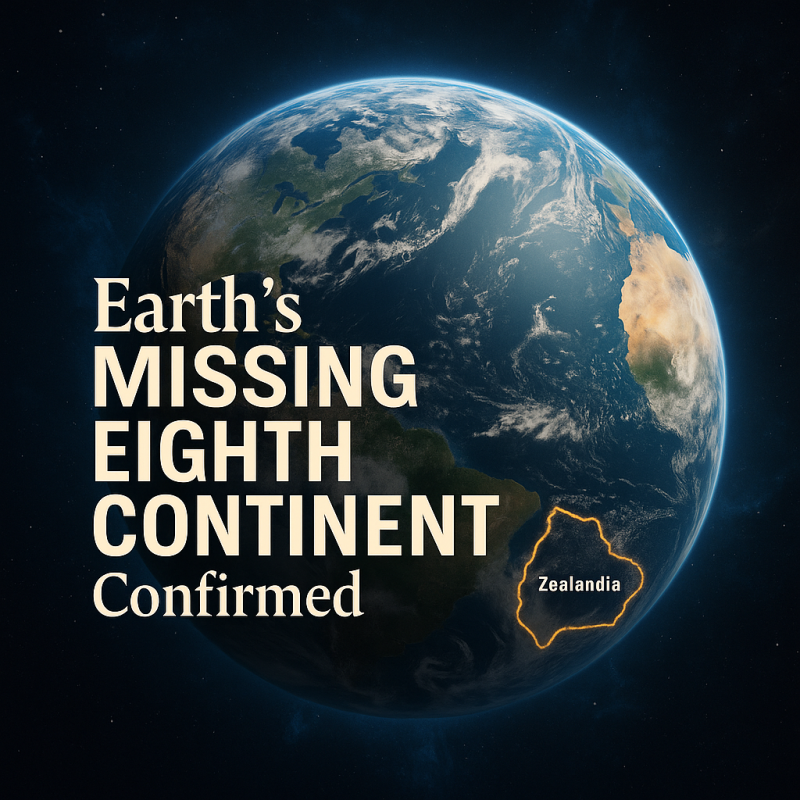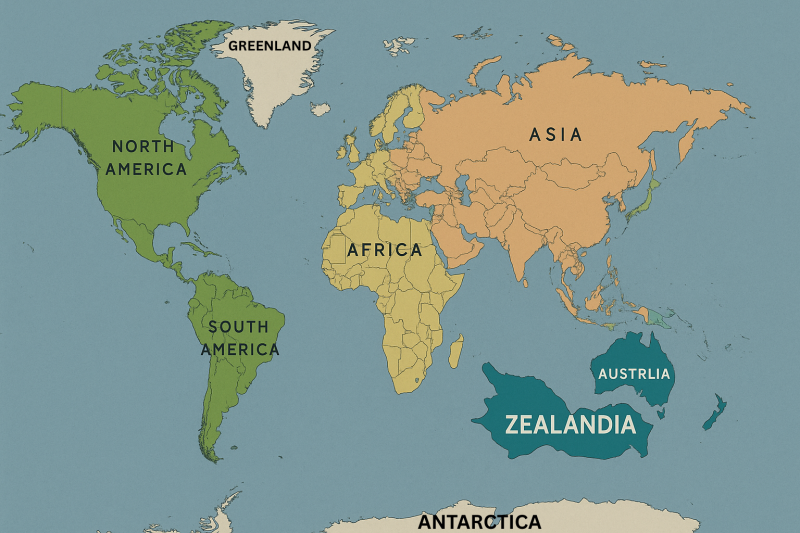
There are moments when the Earth reminds us how little we actually know about it. This week, I stumbled across something extraordinary: the discovery and confirmation of Zealandia, a long-suspected but elusive “eighth continent” that’s been hiding beneath the ocean’s surface for millions of years. And to be honest, it’s kind of blowing my mind.
I’m not a geologist or a marine biologist, but I’ve always been someone who’s fascinated by the parts of our world that feel untouched, unexplored, or misunderstood. So when I read about Zealandia—a nearly two million square mile landmass lying mostly underwater in the South Pacific—I felt this mix of awe and anxiety. Awe, because it’s like Earth just pulled back a curtain on a secret room we never knew existed. Anxiety, because if it’s becoming more visible now, could that be yet another signal of how rapidly our planet is warming?
For context, only about 5% of Zealandia actually peaks above water, forming parts of New Zealand and a few other islands. The rest has stayed submerged and shrouded in mystery for tens of millions of years. Scientists are calling it a full-fledged continent, one that split from the ancient supercontinent Gondwana and eventually sank beneath the sea due to tectonic changes. That alone is wild. But it’s not just the geological implications that have me buzzing—it’s the ecosystem that might exist down there.
What lives in a place like that?
It’s hard not to imagine Zealandia as a kind of Atlantis, not in the mythological sense, but as a real, sunken world that has possibly hosted its own unique wildlife for eons. I keep thinking about the creatures—fish, invertebrates, coral species, maybe even entirely unknown organisms—that could have adapted to life in such a distinctive environment. What if there are animals down there that don’t exist anywhere else on Earth? What if this submerged continent is a sanctuary for species we thought were extinct?
The ocean is already Earth’s last frontier, and Zealandia could be its crown jewel. Unlike shallow reefs or open water ecosystems, a sunken continent would offer ridges, plateaus, valleys—topography that fosters biodiversity. Deep-sea corals. Strange bioluminescent creatures. Maybe even migratory species that follow patterns we haven’t been able to trace before now. And as this landmass becomes more visible—thanks, it seems, to global warming and rising sea temperatures—I can’t help but worry.
Because this isn’t just a cool science discovery. It’s also a reminder of how drastically we are altering the planet. If the reason we’re “seeing” Zealandia more clearly now is due to glacial melt, ocean warming, or sea level changes, then this is also a climate story. A story that tells us the Earth is shifting—not in slow, geological time, but in real time. In our lifetimes.
It makes me wonder what else we’ll uncover—either by curiosity or by crisis.
Will Zealandia remain hidden beneath the waves, a tantalizing mystery just beyond our reach? Or will climate change reveal more of its secrets, bringing with it the kind of fragile beauty we’re not prepared to protect? We’re already watching coral reefs bleach, fish stocks collapse, and entire marine habitats erode in the face of warming and pollution. If we do begin to explore Zealandia in earnest, I hope we do so with care, respect, and humility.
Because I think there’s something poetic about this discovery. That a piece of Earth, long-forgotten and out of sight, has been quietly holding its ground beneath the ocean all this time. A sunken continent. A ghost of Gondwana. A chapter of Earth’s history we’re only now beginning to read.
It’s easy to think the world is fully mapped out. That we’ve explored all the major frontiers. But Zealandia reminds me that there’s still mystery left. Still wonder. Still parts of this planet that are bigger, older, and more beautiful than we’ve dared to imagine.
And I hope we don’t mess it up.

Add comment
Comments